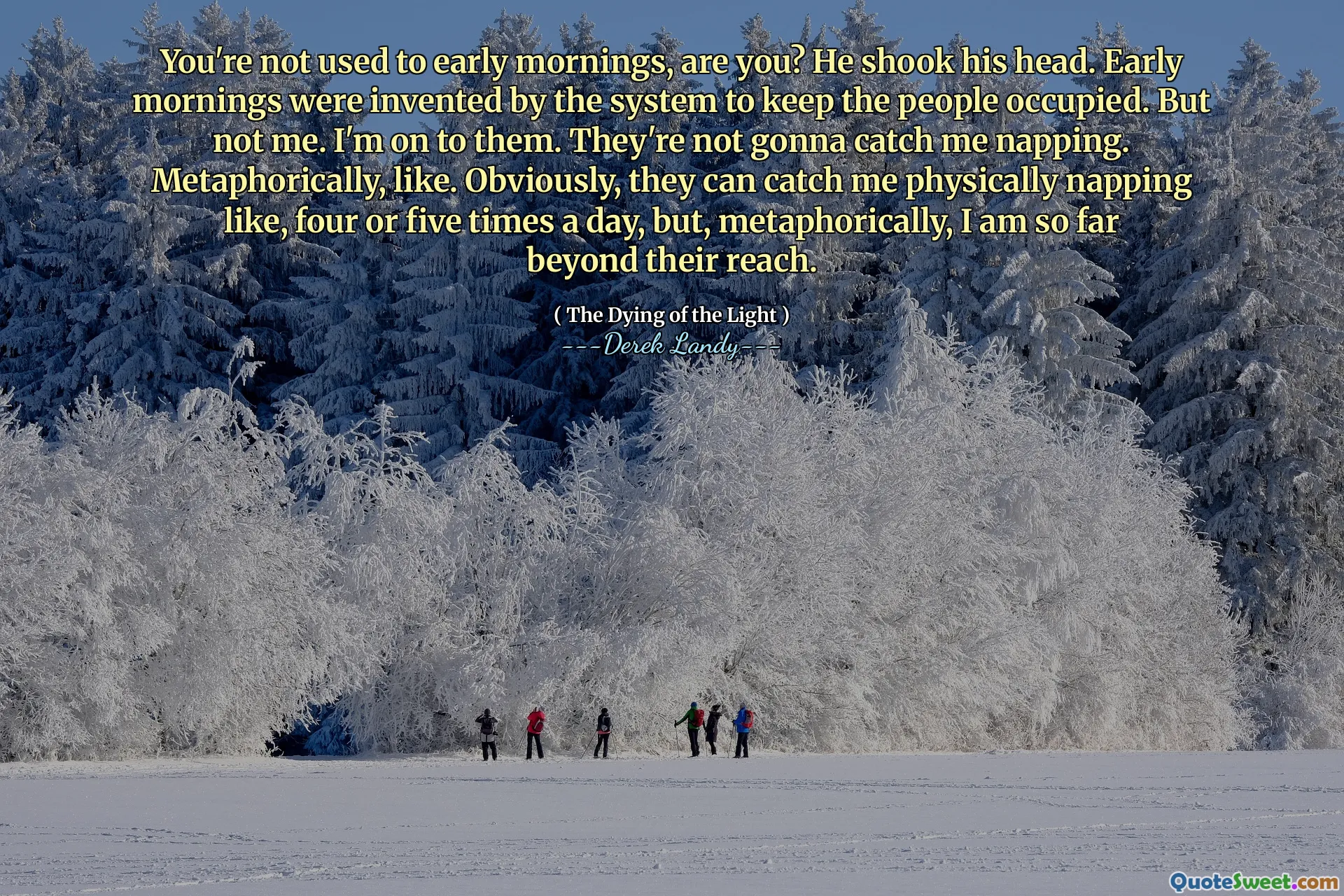
You're not used to early mornings, are you? He shook his head. Early mornings were invented by the system to keep the people occupied. But not me. I'm on to them. They're not gonna catch me napping. Metaphorically, like. Obviously, they can catch me physically napping like, four or five times a day, but, metaphorically, I am so far beyond their reach.
The quote presents a compelling perspective on rebellion against societal constructs and control. The speaker dismisses the idea of early mornings as a tool created by the 'system' to impose order and routine, viewing it as a method of keeping people engaged in monotonous, perhaps mindless, activity. The statement 'not me. I'm on to them.' signifies a conscious awareness and acknowledgment of manipulation, embodying a spirit of defiance and individuality. The use of metaphor—distinguishing between physical naps and metaphorical 'napping'—illustrates a desire to transcend beyond mere surface-level resistance. While they may be physically subject to routines, their mind and spirit operate on a different plane, far removed from the traps of conformity. This attitude resonates with themes of mental liberation and resistance to authoritarian control, emphasizing that true freedom isn't simply about physical escape but also about mental sovereignty. The notion that routines are artificially imposed to subdue thoughts and behaviors is very relevant in discussions about societal pressures, control, and the importance of maintaining personal autonomy in an environment designed to standardize behavior. It prompts reflection on whether individual rebellion is merely about visible defiance or about preserving a sense of internal independence that cannot be taken away. In a broader context, the quote encourages questioning authority and routine, inspiring one to seek mental independence and to remain vigilant about the influences shaping everyday life. It encapsulates the tension between societal expectations and individual freedom—a timeless philosophical debate about obedience versus autonomy. The phrase 'far beyond their reach' suggests resilience, empowerment, and an unbreakable spirit that refuses to be subdued by external forces, making it a compelling statement of individual resistance and mental freedom.






